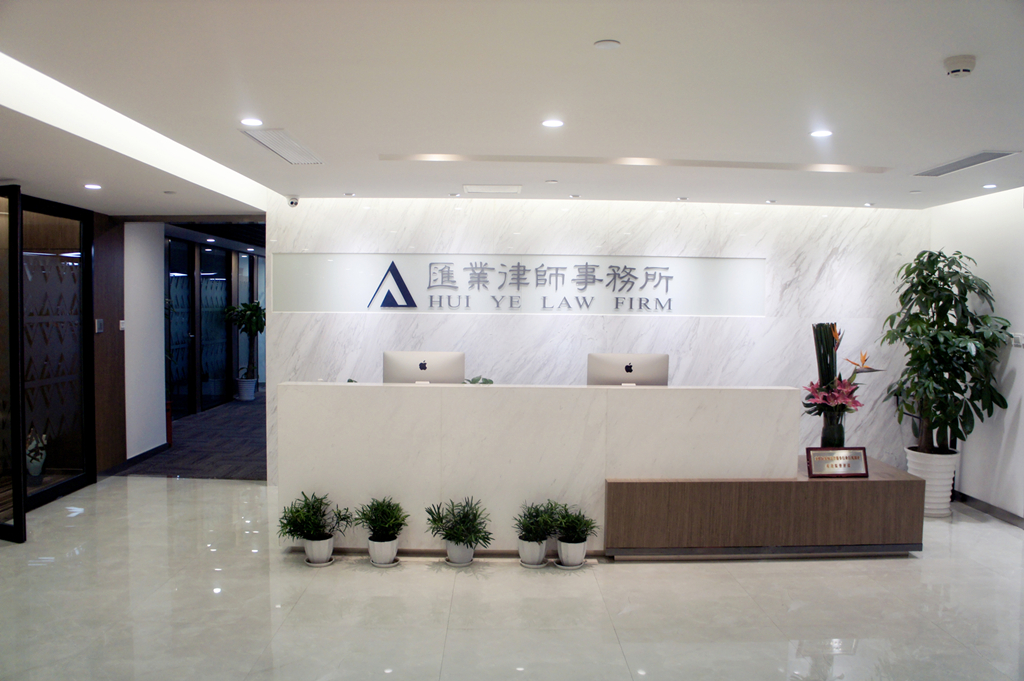recently, Writers Guild of America (WGA) Alliance of Motion Picture and Television Producers (AMPTP) An agreement was reached3The interim agreement of the year, To resolve in the scriptwriter vsAMPTPA strike that occurs after a labor dispute. The agreement is2023years9month27Achieved on days, And before that, The writers have gone as long as148Day strike, It was the second longest strike in the organization's history. According to the "USA Today" report, WGAThe leadership council has lifted a restraining order that prevented writers from returning to work, Its members will be in10month2solstice10month9A vote will be held between Sunday to formally ratify the agreement. In a story that was once considered science fiction, A major point of contention between writers and producers is the use of artificial intelligence in the writing process.
Artificial intelligence refers to the simulation of human intelligence and cognitive functions (Such as problem solving and learning) System or technology. Generative artificial intelligence is a specific type of artificial intelligence, Various types of content can be generated, For example text, Image and audio, This is also this one "Writers' strike" Key issues in the event. How does copyright law apply to scripts and other creative works generated by artificial intelligence, The most important case law on the subject to date, And how will the dialogue between copyright law and AI-generated creative works evolve.
The occurrence and development of contradiction
America "Copyright law" therefore "constitution" The first1Article No8Section based, Adoption of this clause "Ensure that authors and inventors have exclusive rights to their respective works and discoveries for a limited time" , To promote the development of science and practical technology. "Copyright law" The specific content is currently embodied in the United States Code17Ed, namely "1976Annual Copyright Act" (1978years1month1Effective from today) . "Copyright law" The first102articleAIt details what is eligible for copyright protection. Works must: (1) It's an original work; (2) Fixed in a tangible medium of expression. In addition, Works must have "A certain level of creativity" .
The debate over whether the use of emerging technologies leads to authorship is nothing new. 1884years, Supreme Court inBurrow-Giles Lithographic Co. (Burrow-Gilescorporation) vNapoleon Sarony (Saroni) A case ( "Burrow-Gilescase" ) A question is raised that is similar to the subject discussed by copyright lawyers. A man named Napoleon.Saroni (Napoleon Sarony) The photographer took a picture of Oscar.Wilde (Oscar Wilde) Photo of, The photo is called "Oscar.Wilde18No" . Burrow-GilesThe company copied the photo without Saroni's permission, The photographer argued that his actions violated copyright law, So a lawsuit was filed against him. Consider that photography is a new medium, Naturally, there is a problem, Whether it meets the traditional definition of authorship. In this case, The decision of the case rested on one fact, That Saroni did more than just press a button on the camera. On the contrary, Saroni's work is one "Beautiful picture" , It's him "Original ideas" The result of. He put Wilde in front of the camera, Pick and arrange his clothes and accessories, He also tweaked the lighting to create the result he wanted. Because Saroni helped create this photo, Final determination of the court "Oscar.Wilde18No" It's an original work, Should be protected by the Constitution.
In recent years, The court found, Except it has to be original, Works must also have a human authorship to be eligible for copyright protection. inNarutovSlatA case ( "Narutocase" ) In the, A man named David.Slater (David Slater) The photographer set up an unattended camera, And one namedNarutoThe monkey used it to take a series of pictures of itself. The photos went viral online, One of the photos is called "Monkey selfie" . People for the Ethical Treatment of Animals (PETA) Is a party to the case, It bases "Copyright law" The identity of the prescribed author is broad enough, You can think of the monkey as the author of the photo. however, The United States Court of Appeals for the Ninth Circuit held that, "Copyright law" Language in, Such as "Sons and daughters" , "grandchildren" , "Legitimate birth" , "Widow" and "widower" Etc, All suggestive of human identity, This does not necessarily include animals. therefore, On the basis of "Copyright law" , NarutoWithout standing to Sue, The case was dismissed.
"United States Copyright Office Practice Compilation" (Compendium of U. S. Copyright Office Practices) The first306The article also reflects the same understanding. The manual was produced by the United States Copyright Office, It is primarily for use by the staff of the agency, As a registration, A general guide to policies and procedures such as deposit and registration. The U. S. Copyright Office will only register original works created by humans. The manual expressly refuses registration by Nature, zoon, Works created by plants and gods or supernatural beings. In addition, The agency does not register works made by machines or purely mechanical processes, These machines or purely mechanical processes are run randomly or automatically without any creative input or intervention from human authors.
2023years3month, The U. S. Copyright Office has issued new registration guidelines: Applicants must disclose that the work submitted for registration contains content generated by artificial intelligence. Whether copyright is granted depends on whether the work is a human author using technology as an aid (Similar to Saroni inBurrow-GilesA camera was used in the case) creative, Or whether the expression of the work is generated by a machine. Only the former are eligible for copyright protection.
2023years8month18day, Ruled by the United States District Court for the District of Columbia, Content generated without human involvement does not qualify for copyright protection, The case in question is Steven.Taylor (Steven Thaler) V. Hela.Perlmutter (Shira Perlmutter) A case ( "Taylor case" ) . The plaintiff, Taylor, owns a company called "Creative machine" The artificial intelligence computer system, The system generated a piece called "The newest entrance to heaven (A Recent Entrance to Paradise) " Artwork of. Taylor challenged the Copyright Office's claim to human authorship, If the AI otherwise meets the criteria for authorship, He should be recognized as the author, Copyright ownership belongs to the owner of the AI. Although the Ninth Circuit Court of Appeals recognized that copyright was designed to adapt to The Times, But human creativity is a basic requirement for copyright ownership. The court cited "Burrow-Gilescase" , Reaffirmed the photo "Oscar.Wilde18No" It was granted copyright protection because of Saroni "The image was conceived and designed, The images were then taken with the camera" , And Saroni's careful curation of the photos was enough to obtain the authorship required for copyright ownership. On account of "Creative machine" right "The newest entrance to heaven" Took full responsibility, Taylor's claim is not "Burrow-Gilescase" The precedents set are mutually exclusive. This precedent——Authorship is synonymous with human creation——Even as the discipline continues to evolve, It is also consistent in copyright law. therefore, Taylor is not entitled to copyright ownership of the work.
"Burrow-Gilescase" , "Narutocase" and "Taylor case" Instructions, In terms of copyright registration, There is no legal precedent that allows works generated solely by artificial intelligence to gain authorship. As discussed in this article, Human authorship is a necessary condition for copyright protection. Since the 19th century, Copyright law has struggled with the question of what constitutes authorship, proximate "Writers' strike" The incident is just the latest example of emerging technologies complicating the issue. Video game and Internet culture writer Will.Bedingfield (Will Bedingfield) In order to "on-line" In an article written by the magazine, Current artificial intelligence is rapidly eating into the livelihoods of screenwriters——It can be taken on the Scholastic Aptitude Test (SAT) Read the exam to get93Good grades, And can already write stories and poems. The strike largely wasWGATrying to get a head start on this technology before it gets even more powerful.
Hollywood's artificial intelligence
Just like the American media "The Ringer" As described, WGAandAMPTPHave opposing views on how to use AI technology in your writing process. Before we make a deal, WGAWilling to allow writers to use AI, But it drew a line under how the use of the technology would affect writers' earnings. In addition, WGAThe leadership of the company wants to set the following boundaries in the use of this technology: Ai cannot write or adapt literary material, Ai cannot be considered "Source material" , On the basis ofWGAThe script written by the contract cannot be used to train the AI (This process usually refers to "Use a program to download it from the Internet" ) . AMPTPThese restrictions were initially rejected, Instead, annual meetings are held to discuss advances in the technology.
In the Internet news media "Mashable" In an article above, Culture and entertainment writer Sam.Haysom (Sam Haysom) Introduced in detailWGAConcern of, Studios will use artificial intelligence as a starting point for screenwriting, Writers are then hired for low pay to make simple adaptations of the material. For screenwriters, Adapting a screenplay doesn't pay as much as supplying a studio with an original script. therefore, WGAThere are concerns that the technology will be used to avoid paying screenwriters what they are based onWGAThe principle of deserved remuneration. In the case of screenwriters adapting AI-generated scripts, The studio satisfied the identity of the human author required for copyright protection, But it also limits the author's intellectual property rights.
According to the "The Hollywood Reporter" report, inWGAandAMPTPIn a preliminary agreement between the two, WGAIt ensures that the AI will not create or adapt original material or be used as a screenwriter adaptation "Starting point" . If the writer's company allows it, Then they can use the technology. however, Employers cannot require the use of generative AI, They must also disclose whether they provided the writers with AI-generated material during the writing process. In addition, WGAIt also reserved the right to argue that the use of screenwriters' material to train AI would be prohibited by its protocols or other laws. The tentative agreement is designed to prevent the worst from happening in TV writers' jobs, That is, producers may ask writers to edit a script generated by artificial intelligence, And scriptwriters will not be able to profit from their work.
Whether the industry welcomes it or not, The future cannot be separated from artificial intelligence
The timely emergence of this issue highlights the relationship between copyright ownership and authorship across the creative industry. Take that into consideration, How artificial intelligence will affect the future of creative industries?
With the ratification of the new agreement, One involving comedian and actress Sarah.Silverman (Sarah Silverman) Lawsuits are watched. Silverman sued the AI platformOpenAIandMeta, Companies claiming both platforms were using her without her consent2010The system for training them came from years ago. Both platforms currently use existing works for language learning. Silverman thinks, Failing to get her permission violates intellectual property law. In cultural media "Vulture" In an article, Said a member of Silverman's legal team, Artificial intelligence system "It's based entirely on the work of human creators" and "Training material, Attempting to imitate the works of human creators" . therefore, Artificial intelligence can show human ingenuity, While avoiding the credit of the creator of the original work. Silverman's team, though, made a high-profile case, But some expect it to be another uphill battle: 2016years, The Supreme Court rejected a claim that Google Books' summary of text and provision of excerpts to users violated copyright law, Ruled in favor of Google Books.
In fact, None of the major industry players show signs of giving up on AI. According to CBS News, During the writers' strike, Netflix is building its artificial intelligence division. A high salary90$10, 000 AI work offered to help streaming services "Create great content" Chance of, This caused a great deal of controversy. According to financial media "TheStreet. com" An article on, Netflix later changed the wording in the job description, To reflect the technology in "Promote innovation, From personalizing services for members to optimizing our payment processes and other initiatives focused on increasing revenue" Use of. The same article also discusses how Disney hires senior machine learning engineers, In charge of "forDisney+, Star+andESPN+Create artificial intelligence solutions" . Will new guidelines on how studios use generative AI shape the landscape of film and television writing in the coming years. The film and television industry is currently at a crossroads between legal uncertainty and the state of emerging technology, How these problems will be solved will be worthy of further attention in the future. (Be compiled fromwww. lexology. com)
TRANSLATORS: Wang Dan proofread: Rason group
disclaimer: This network reprint or compile the original articles are from the network, Does not represent the views of this website or confirm the authenticity of its content. If the source is mislabeled or the copyright of the article is involved, Please contact us, This website will be corrected in due course, delete, thank you.

Safeguarding the rights of economic and trade hotspots





